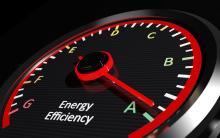New magnetic liquids to convert waste heat into energy

EU-funded researchers are developing new liquid magnetic materials that convert waste heat into electricity. The long-term aim for these materials, which are both affordable and environmentally friendly, is to use them to harness waste thermal energy to reduce energy consumption and help tackle the global energy crisis.









